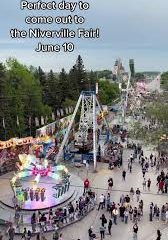Understanding the Evolving Role of a Butler in Today’s World

The Importance of Butlers in Modern Society
The role of a butler is often romanticized in literature and cinema, portraying a figure of sophistication and service. However, the significance of butlers in today’s world goes beyond mere fiction. As high-net-worth individuals seek personalized services, the demand for skilled butlers has increased, making them an essential component of luxury hospitality and private household management.
Historical Context
Traditionally, butlers were seen as head servants in noble households, responsible for managing staff and ensuring smooth operations within the home. Their duties included greeting guests, overseeing dining services, and maintaining the household inventory. However, as societies evolved, so did the role of butlers.
Modern Responsibilities
Today, butlers are no longer confined to grand estates. Their responsibilities have expanded, aligning more with the lifestyles of the affluent. They now perform a range of tasks, from managing household budgets to coordinating events and arranging travel logistics. Moreover, with the rise of technology, contemporary butlers often utilize smart home systems to streamline operations.
In metropolitan areas like Toronto and Vancouver, private households have begun hiring butlers not just for their service expertise but also for their ability to manage complex schedules and expectations of luxury living.
Training and Professionalism
As the profession evolves, training programs and certifications have emerged. Institutions like the International Butler Academy in the Netherlands teach aspiring butlers the art of service, etiquette, and management techniques. These programs emphasize the importance of discretion, attention to detail, and multi-tasking abilities—skills essential for success in the role.
The Future of Butler Services
As the luxury market continues to expand, coupled with a growing trend for personalized services, the future looks bright for butlers. Industry forecasts suggest that the demand for this role will continue to rise, highlighting a shift in how wealth is being spent—not just on material goods, but also on service and experience.
Conclusion
The butler is far from being a relic of the past; rather, they embody the fusion of tradition and modernity. For those considering a career in this field or individuals in need of their services, understanding the evolving nature of a butler’s role is crucial. The emphasis on personal service, discretion, and management in an increasingly busy world makes butlers more relevant than ever.







